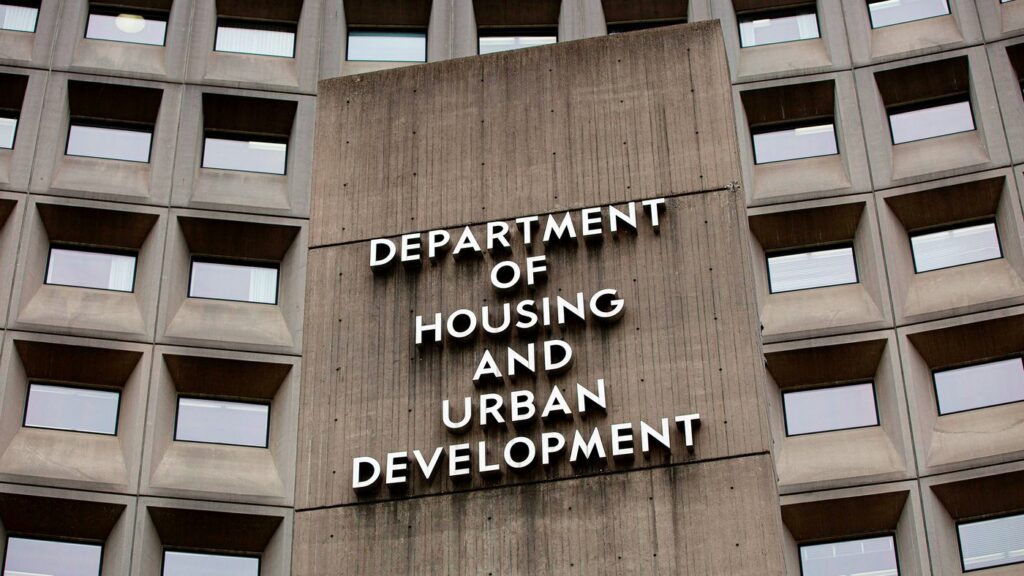The U.S. Department of Housing & Urban Development (HUD) has announced $5.5 billion in funding that will go to 1,200 communities through more than 2,400 grants to states, urban counties, insular areas, D.C., Puerto Rico, and localities nationwide. These annual formula grants provide critical funding for a range of activities to address their most pressing local needs, providing flexible resources to build homes, support renters and homeowners, provide assistance to those experiencing homelessness, create jobs, and improve public facilities, community resilience, and local economies.
“Homeownership is an essential part of the American Dream that represents so much more than a roof over our heads. For people all across our nation, a home represents financial security, the opportunity to build wealth and equity, and a foundation for a better future for themselves, their children, and future generations,” said Vice President Kamala Harris. “That is why President Biden and I are expanding on our historic investments in housing by announcing $5.5 billion that will increase access to affordable housing, invest in economic growth, and address homelessness in communities throughout America. This funding will build more affordable homes and support renters and homeowners while also lowering costs, building wealth, and creating jobs.”
A breakdown of grants
The grants are provided through the following HUD programs:
- $3.3 billion to 1,254 grantees to build stronger communities: The Community Development Block Grants (CDBG) provide annual grants on a formula basis to areas to develop stronger, more resilient communities by providing decent housing and a suitable living environment, and by expanding economic opportunities, principally for low- and moderate-income people. In 2023, the program helped more than 62,000 families through housing activities, 25,500 individuals through job creation or retention, 52,000 people experiencing homelessness through improvements to homelessness facilities, more than 5.4 million people through public services, and more than 41.8 million people through public improvements.
- $1.3 billion to 668 grantees to build affordable housing: The HOME Investment Partnerships Program (HOME) is the primary federal tool to produce affordable rental and owner-occupied housing for low-income families. HOME funds an array of activities, including building, buying, and/or rehabilitating affordable housing for rent or homeownership or providing direct rental assistance to low-income people. HOME projects leverage non-federal funds including, in many cases, tax credits for affordable rental housing. In 2023 the program helped create over 13,000 units of housing and more than 13,000 households were assisted with tenant based rental assistance through the HOME program.
- $455 million to 130 grantees to connect people with HIV/AIDS to housing and support: The Housing Opportunities for Persons With HIV/AIDS (HOPWA) program provides stable and permanent housing assistance and supportive services to low-income people living with Human Immunodeficiency Virus (HIV). More than 100,000 households receive HOPWA housing assistance and/or supportive services annually.
- $290 million to 357 grantees to address homelessness: HUD’s Emergency Solutions Grants (ESGs) provides funds for homeless shelters, assists in the operation of local shelters, and funds related social service and homeless prevention programs. Recipients enable people to quickly regain stability in permanent housing after experiencing a housing crisis and/or homelessness. ESG funds may be used for street outreach, emergency shelter, homelessness prevention, and rapid re-housing assistance. Annually, ESG connects more than 350,000 people to emergency shelter as they transition to permanent housing.
- $30 million to 23 States and the District of Columbia to support recovery from substance use disorder: The Recovery Housing Program (RHP) allows for stable and transitional housing for individuals in recovery from a substance-use disorder.
- $214 million to every state to increase affordable housing supply: Housing Trust Fund (HTF) is an affordable housing production program that complements existing federal, state and local efforts to increase and preserve the supply of decent, safe, and sanitary affordable housing for extremely low- and very low-income households, including families experiencing homelessness. HTF is a formula-based program for states and U.S. territories. By law, each state is allocated a minimum of $3 million. State affordable housing recipients will use these funds for the eligible activities including real property acquisition, site improvements and development hard costs, related soft costs, demolition, financing costs, relocation assistance, operating cost assistance for rental housing (up to 30% of each grant), and before reasonable administrative and planning costs. In 2023 the program helped create over 1,681 units of affordable rental housing for extremely low-income households.
“A coordinated whole-of-community approach is crucial to build strong and resilient communities, invest in decent housing, create healthy environments, expand economic opportunities accessible to low-income households, and support aspiring homebuyers and those experiencing homelessness,” said Acting HUD Secretary Adrianne Todman. “The funding made available today serves as building blocks to empower communities to take ownership of community development investments and put the needs of residents first.”
HUD’s coordinated efforts towards fair and equitable housing
“For 50 years HUD has provided flexible grant funding so that communities nationwide can make their own choices about addressing their most urgent challenges,” said Marion McFadden, HUD’s Principal Deputy Assistant Secretary for Community Planning and Development. “These funds will be used to create permanent housing, offer temporary shelter, provide downpayment assistance for ready homebuyers, support community infrastructure – like water and sewer projects – and invest in small businesses.”
HUD recently announced $3.17 billion in Public Housing Repair funding to 2,756 public housing authorities (PHAs) nationwide to make capital investments in public housing stock. PHAs can use these funds to improve the development, financing, modernization, and management of public housing developments. These funds were part of HUD’s Capital Fund Program, which provides annual financing to all public housing authorities for the construction, renovation, and/or modernization of public housing in their communities. Housing authorities can utilize the funds to make large-scale improvements such as roof replacements, energy-efficient heating system modifications, and water conservation measures.
HUD has also just published new final rule implementing portions of the Housing Opportunity Through Modernization Act of 2016 (HOTMA) by amending the Housing Choice Voucher (HCV) and Project Based Voucher (PBV) programs. These programs help communities preserve and expand the supply of affordable housing for low-income families and streamline and accelerate processes to reduce the regulatory burdens on PHAs, as these programs supply PHAs with the necessary tools to support activities that both preserve and expand the supply of affordable housing. HUD’s new final rule aligns with and supports emerging national and local strategies to rapidly increase affordable housing supply, while ensuring families are able to successfully lease a decent, safe and sanitary unit with tenant based or project-based voucher assistance.








